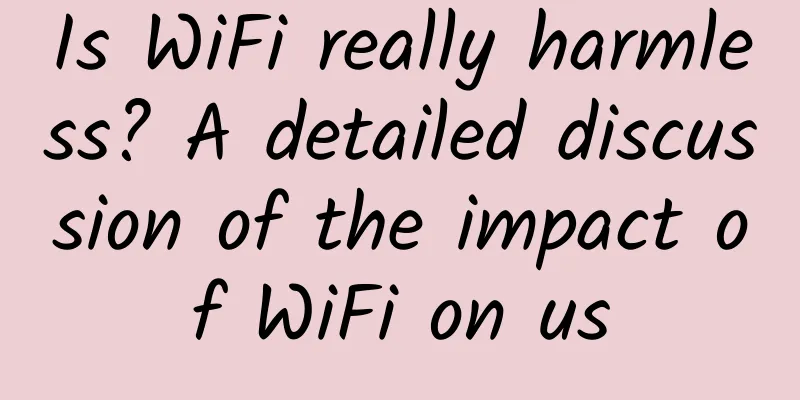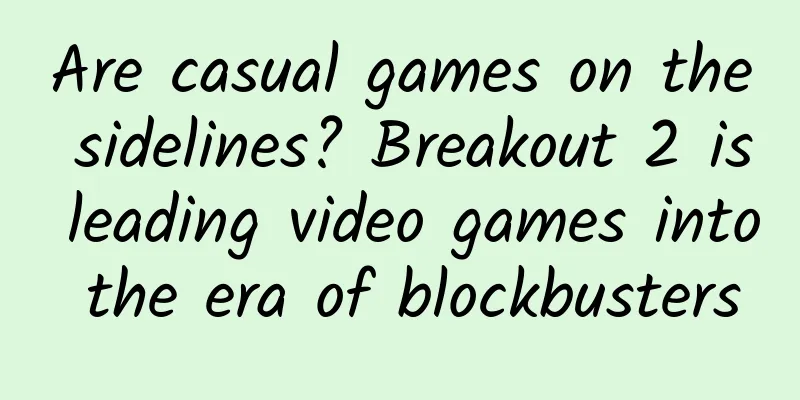Is WiFi really harmless? A detailed discussion of the impact of WiFi on us

|
The rise of mobile devices has brought Wi-Fi into every household. In the near future, we may live in a "sea world" full of Wi-Fi. So we can't help but ask, is Wi-Fi really harmless? If not, how can we prevent the harm it brings? The answer is the same as many people think, Wi-Fi is harmless. But why? Take a microwave oven as an example. First of all, the radiation intensity of Wi-Fi is 100,000 times weaker than that of a microwave oven. Secondly, the microwaves of a microwave oven are directional and the voltage is very high, while the radiation of Wi-Fi is non-directional and the voltage is much lower. This is like focusing light to burn paper. If you focus the sunlight and shine it on the paper in a directional way, the paper will be ignited. And Wi-Fi follows the inverse square law in physics. This law means that when the distance is doubled, the energy will be reduced to one-fourth, which means that the energy of Wi-Fi will decay rapidly as the distance increases. So don't believe the wireless routers that cover a wide area in advertisements, because even if the power is increased, the signal will still decay quickly. In fact, compared with Wi-Fi radiation, mobile phones have a greater impact on the human body. Because when using a mobile phone, it is usually very close to the brain, on the contrary, when using Wi-Fi, you don't need to stick to the router to use it. Experiments have shown that it only takes 20 minutes to make a phone call, and the radiation absorbed by the human body is far more than that of Wi-Fi in a year. From the above introduction, it can be seen that Wi-Fi has little impact on the human body, so you can use it with confidence. But some friends say, no, technology is developing rapidly, and the harmlessness now does not mean that it will be harmless in the future. So if we want to defend against these Wi-Fi radiation, is there any way? A simple aluminum foil helmet can defend against the impact of Wi-Fi signals: The method is very simple, as long as aluminum foil can achieve the effect of isolating Wi-Fi radiation. But it seems unrealistic to cover the entire room or house with aluminum foil, so the best way is to make a radiation-proof helmet like Magneto in the comics. Of course, if you think wearing an aluminum foil helmet is a stupid approach, there are other materials to choose from. Recently, a radiation-proof hat appeared on the Kickstarter crowdfunding website. This fashionable hat is made of special silver fiber. Just wearing this hat can effectively prevent the radiation caused by Wi-Fi. After talking about prevention and control, let's talk about development. In addition to allowing us to surf the Internet, what else can Wi-Fi bring in the future? And who is most likely to become the successor of Wi-Fi in the future? Let's take a look. Researchers at the MIT Artificial Intelligence Laboratory in the United States have developed a software called Emerald. This software can use Wi-Fi signals to monitor objects in the room, which is a bit like an X-ray machine. Although this technology can be used in the VR field as a somatosensory control after maturity, this software seems to be easy to leak personal privacy. Is it possible for LiFi to become a substitute for Wi-Fi: In southern France, an emergency room called Pergignan Hospital began to use a device called LiFi. LiFi is a visible light communication technology that transmits wireless communications through light. The characteristic of this technology is that the transmission speed is faster than Wi-Fi, and because it does not rely on radio waves to transmit information, it will not generate electromagnetic interference, which means that you can also use your mobile phone to surf the Internet while flying. Another advantage of LiFi is that it is safer, because it is transmitted in light and data transmission is sent directly, so data leakage is basically impossible. There are pros and cons. LiFi can only communicate in one direction at present. That is to say, the signal can only be transmitted from the light bulb to the mobile phone, but the signal on the mobile phone cannot be reflected back. And because it relies on visible light as a carrier, the range is also limited. There is a signal only when there is light, and there is absolutely no signal without light. The last point to talk about is that although the Wi-Fi signal itself is harmless, casually connecting to an unfamiliar Wi-Fi signal may leak personal information. So in general, Wi-Fi is not completely safe, so friends who often like to "freeload" should be careful. As a winner of Toutiao's Qingyun Plan and Baijiahao's Bai+ Plan, the 2019 Baidu Digital Author of the Year, the Baijiahao's Most Popular Author in the Technology Field, the 2019 Sogou Technology and Culture Author, and the 2021 Baijiahao Quarterly Influential Creator, he has won many awards, including the 2013 Sohu Best Industry Media Person, the 2015 China New Media Entrepreneurship Competition Beijing Third Place, the 2015 Guangmang Experience Award, the 2015 China New Media Entrepreneurship Competition Finals Third Place, and the 2018 Baidu Dynamic Annual Powerful Celebrity. |
<<: Why is Samsung's TouchWiz always criticized? The reason is not the product
>>: Price hikes can’t save iQiyi, business potential is shrouded in mystery
Recommend
The number of new products has dropped sharply. Are the good days of panels coming to an end? The market is not interested, forcing the whole machine manufacturers to put pressure on the opposite side.
No market will support unilateral price increases...
Why is the existence of “marketing accounts” a good thing?
Teacher Cao said that there are three types of ma...
30 Unforgettable HTML 5 Templates
In today's world, content management systems ...
The goldfish has been wronged for so long, will it really eat to death?
Goldfish don’t die from being “overfed”, they die...
Vice President of Product at Lizhi FM: Sharing of experience in operating UGC products
A UGC platform is an ecosystem. To develop sustai...
Is it true that soft cotton is the magical "flower" that can change world history?
Magellan was determined to go around America in s...
China Academy of Building Research: 2021 White Paper on the Current Status of Intelligent Building Applications
Based on more than 1,000 survey questionnaires, t...
Social rules in the cat world: Why do cats live under the same roof but appear to be close but are actually distant?
Many cat owners have to go to work during the day...
How to collect data more valuable and analyze data efficiently?
Last time we talked about the significance and va...
Hot search! E. coli was detected in ice cream. Does it mean it is contaminated by feces? Can we still eat it safely?
Recently, a media report said that half of the ic...
How to create a travel-related TikTok account from 0 to 1?
1. Industry Background As we all know, Douyin is ...
Don't come over here! Don't come over here! If you come over here again, I will exterminate your entire clan!
Ever since the ancient continents broke apart, th...
The fragrant tea eggs are actually not nutritious. Why is that?
The origin of tea eggs can be traced back to anci...
Inositol, is it really that magical?
This is the 4774th article of Da Yi Xiao Hu Recen...









